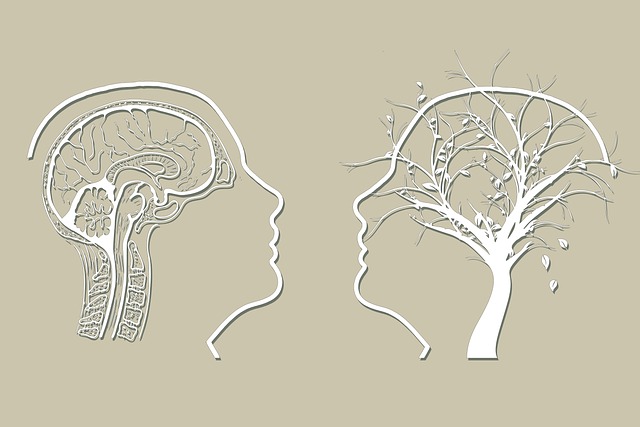Group facilitation combining Christian counseling principles creates a safe space for children's emotional exploration and resilience-building. Through structured sessions, therapists guide young individuals in coping mechanisms, cultural sensitivity, and compassion cultivation. Effective communication, inclusive language, and active listening empower children to navigate challenges with hope and confidence, fostering holistic therapy for children in a nurturing, supportive environment. Regular assessments monitor progress, ensuring tailored therapeutic strategies for individual needs.
Mental wellness group facilitation plays a crucial role in fostering resilience among children, especially within the context of Christian counseling. This article explores effective strategies for facilitators to create safe spaces that promote healing and growth. We delve into techniques for building support networks, engaging young minds through interactive therapy, and measuring the impact of these groups on children’s mental health. By understanding these facilitation methods, therapists can enhance the overall effectiveness of therapy for children in Christian counseling settings.
- Understanding the Role of Group Facilitation in Children's Mental Wellness
- Creating a Safe and Supportive Environment for Christian Counseling Groups
- Effective Communication and Engagement Techniques for Group Facilitators
- Measuring Success: Assessment and Tracking Progress in Children's Mental Health Groups
Understanding the Role of Group Facilitation in Children's Mental Wellness

In the realm of children’s mental wellness, group facilitation plays a pivotal role, offering a unique and supportive environment for young individuals to navigate their emotional journeys. This therapeutic approach is particularly effective when intertwined with Christian counseling principles, fostering a sense of belonging and understanding among peers. Through structured group sessions, facilitators can guide children in exploring their feelings, building resilience, and developing essential coping mechanisms. By employing empathy-building strategies, therapists create a safe space where kids feel heard, validated, and empowered to share their experiences openly.
Cultural sensitivity in mental healthcare practice is integral to this process. Recognizing the diverse backgrounds of participants allows facilitators to adapt their methods, ensuring that every child receives tailored support. This approach not only enhances the overall effectiveness of therapy but also encourages a deeper exploration of personal struggles within a culturally rich and inclusive setting. By combining these techniques, therapy for children in Christian counseling settings can become a powerful tool, enabling young minds to flourish and overcome challenges with newfound hope and confidence.
Creating a Safe and Supportive Environment for Christian Counseling Groups

Creating a safe and supportive environment is paramount when facilitating Christian counseling groups, especially for children. This involves establishing guidelines that foster trust and respect, ensuring every participant feels heard and valued. As a facilitator, it’s crucial to model empathy and active listening, encouraging open dialogue while maintaining confidentiality. Incorporating compassion cultivation practices can help create a nurturing atmosphere, allowing children to explore their emotions in a non-judgmental space.
Regular risk assessments for mental health professionals are essential to identify potential triggers or vulnerabilities among group members. By integrating stress management workshops within the organization’s structure, facilitators can equip children with coping mechanisms and promote resilience. This holistic approach ensures that the counseling group provides not just therapeutic support but also a safe haven where children can thrive and develop emotional intelligence in a Christian-centric environment.
Effective Communication and Engagement Techniques for Group Facilitators

Effective communication is a cornerstone for group facilitators, especially when working with children in a therapeutic setting. Christian counseling professionals should adopt inclusive language and active listening skills to ensure every participant feels heard and respected. This involves making eye contact, paraphrasing, and asking open-ended questions to encourage dialogue and foster self-awareness exercises. By creating a safe space for expression, facilitators can help kids develop positive thinking patterns and improve their mood management skills.
Engaging activities that promote emotional intelligence are key to facilitating meaningful group interactions. Incorporating simple icebreakers, storytelling, or role-playing scenarios allows children to connect on a deeper level. These interactive elements not only enhance overall engagement but also provide opportunities for facilitators to model appropriate communication and offer guidance on managing emotions. Through these techniques, therapy for children becomes dynamic, nurturing, and effective in teaching valuable life skills.
Measuring Success: Assessment and Tracking Progress in Children's Mental Health Groups

Measuring success in children’s mental health groups is a multifaceted process that goes beyond mere attendance or completion of sessions. Effective assessment and tracking progress are essential components of quality care, especially when providing Christian counseling for children. This involves utilizing tools tailored to evaluate a range of factors, including emotional well-being, self-esteem improvement, and the development of compassion cultivation practices. Such assessments can be both formal and informal, ranging from standardized questionnaires to observational notes and parent or guardian feedback.
By regularly monitoring progress, facilitators can adapt their therapeutic approaches to meet individual needs. This may include incorporating confidence-boosting strategies tailored to each child’s unique challenges and successes. Ultimately, tracking progress enables facilitators to ensure that the group environment fosters healthy development and equips children with valuable coping skills, aligning with the goals of therapy for children within a Christian counseling context.
Group facilitation plays a pivotal role in enhancing mental wellness among children, particularly within the context of Christian counseling. By fostering safe, supportive environments and employing effective communication strategies, facilitators can create spaces that encourage open dialogue and promote healing. Measuring success through assessment and progress tracking ensures tailored interventions for each child’s unique needs, ultimately enhancing the effectiveness of therapy for children in these group settings. Integrating these techniques empowers Christian counselors to make a profound impact on the mental health and well-being of young individuals.














